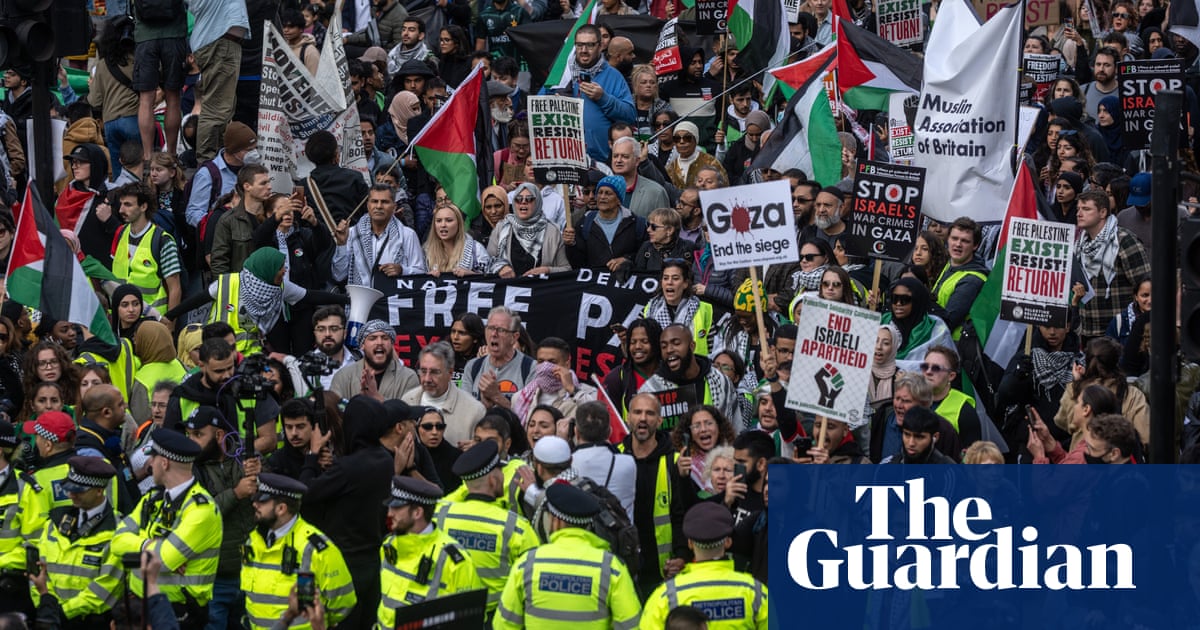
A black former commissioner of the police watchdog, exonerated of misconduct, has accused the Metropolitan police of attempting to destroy her career to curtail the work she was doing investigating racism inside the force.
Jennifer Izekor was appointed in 2012 as commissioner of the Independent Police Complaints Commission, the police watchdog that was replaced by the Independent Office for Police Conduct.
Izekor was one of three commissioners overseeing a number of high-profile police complaints against the Met, including the case of the firefighter Edric Kennedy-Macfoy, who was Tasered by police officers in north London weeks after the 2011 riots.
An investigation into the incident was launched by the Met, which found the officers had no case to answer for. Kennedy-Macfoy, who received an apology from the Met and compensation, appealed against the force’s decision to the IPCC. Izekor was appointed to oversee the investigation for the watchdog. But in July 2016, the misconduct hearing of the three officers involved in the case collapsed after allegations of evidence suppression.
A spokesperson for the Met confirmed the force received criminal allegations against Ikezor in September 2016. “The allegations were not made by the Met,” the spokesperson said.
The Met added that, as the allegations were in regard to the oversight body of the Met, it would have been “wholly inappropriate” for the force to investigate the matter itself.
Police Scotland therefore conducted the investigation, which looked into whether Izekor had deliberately withheld crucial evidence during the misconduct hearing and whether she was racially biased against the police officers.
The investigation, dubbed Operation Amherst, took four and half years to complete, and cost the taxpayer more than £1.5m.
The conclusion of the investigation had not only exonerated her, Izekor said, but she was also shown evidence that the Met had possession of all the key disclosures all along.
She said that at the end of the three days of interviews Police Scotland officers told her that the Met did get all the necessary disclosures.
“It appeared that the officer who signed for [the disclosures] went on holiday after she brought them back to the Met. And she put them somewhere and she didn’t hand them over,” Izekor said. “I looked at the officers with my mouth on the floor. They said they told me ‘in the interest of justice’ – those were their precise words, I can’t forget it.”
During her interviews with Police Scotland, Izekor claims she was asked to define what racism was, whether she knew Kennedy-Macfoy outside the IPCC and if she believed a white person could properly investigate allegations of racial discrimination. She described this line of questioning as “patronising”.
Police Scotland said their investigation concluded in 2020 and their findings were reported to the CPS. “We have received no complaints about how that investigation was carried out,” a spokesperson said. “The Crown Prosecution Service has acknowledged the exemplary approach to the investigation by Police Scotland officers.”
The CPS confirmed that between December 2018 and September 2020 Police Scotland submitted two separate files of evidence. “On both occasions, the material was carefully reviewed by CPS lawyers who concluded that there was insufficient evidence to provide a realistic prospect of conviction, in accordance with our legal test,” a spokesperson said.
In 2021, Izekor said her solicitors received a letter from Police Scotland that stated the investigation was concluded. She was not found guilty of any wrongdoing.
At the time the investigation was launched in 2017, the IPCC was in the process of shutting down and being replaced by the IOPC. Izekor, a long-serving civil servant, said that because she was under criminal investigation she was unable to apply for a public sector role. The investigation had not only damaged her reputation, she said, but had an immense financial impact on her.
Izekor doesn’t see her case as particularly unique. “I remember one of the officers I was working with was bringing a case against [the Met], and his career had been destroyed in the way that the Baroness Casey Review sets out,” she said. “And he said to me, very distinctly: ‘Jennifer, you keep going like this and they will clear your legs.’ It was the first time I heard the phrase. And I said: ‘What does that mean?’ And he said, ‘that’s what happens if you go up against the Met, they’ll take you out’. I said, ‘no, I’m a public servant, They wouldn’t do that to me’. That came back to haunt me.”
She criticised what she describes as a “defensiveness” and “siege mentality” among the leadership in certain sections of British policing. “I met people who came into the Met with an optimism of building bridges between their communities and policing, and were broken – totally, completely broken. I saw grown men cry in front of me because of what was being done to them. How, because they had flagged up issues of discrimination, their careers are being systematically and intentionally destroyed,” she said.
Izekor adds that she has yet to receive an apology from either the Met or Police Scotland, but has continued the work to improve relations between policing and other public sector bodies and minorities communities with the organisation she set up, Above Difference.
“The Met cannot say that they want policing by consent, or that they want the confidence of the communities that someone like me represents, if every time they’re held accountable, or there is a move to hold them accountable, they shut up shed, they put all the hatches up and go into battle mode,” she said.
A spokesperson for the Met added: “The allegations made were serious and it is only right that they be subject to a full investigation.”












